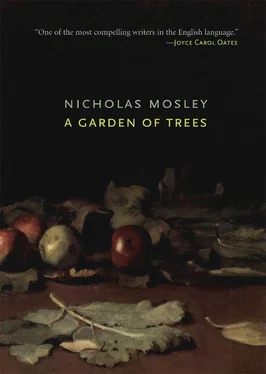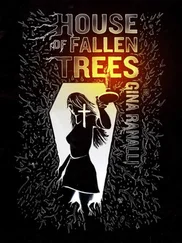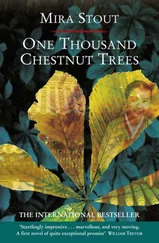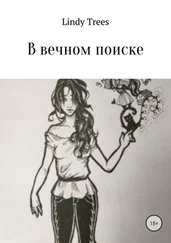He dragged a chair towards him and sat down. “Of course we could stop it,” he said. “But we won’t. We can’t be embarrassing any more.” He flung his legs out and slumped backwards with his head on his chest. “I am resigned, quite resigned. People have always wanted me to be and now I am.” He snorted. “It is terrible,” he said. He was silent for a while and breathed as if he were asleep. Then “I hope to God that one day I will not be resigned any more,” he said.
When Annabelle came back with her cup and saucer she stood by me and said quietly, “Where are you going?”
“Away,” I said.
“I should just like to know,” she said.
“I will tell you when I know myself.”
“Thank you,” she said. She said this almost bitterly.
I watched Peter eat his eggs and drink his coffee and we never spoke, and Annabelle came and went with the regularity of a machine. The time that I had wished to go slowly now did not move at all. The pendulum swung, Annabelle passed steadily with averted eyes, Peter chewed into the silence with the tick of clocks, but the hands on the faces that should have brought us to midnight failed and left us helpless in a dead parade. In the minutes before Marius came we lived a very long time on our own, the sadness and bitterness between us that I had tried to prevent and now could not explain. I felt as if I were at the bottom of the hill with the heap of old iron, the wheels circling ceaselessly in the dusty sun.
When Marius came we heard him on the landing, he was fumbling with the lock of the door and he could not open it, and then we heard the click of the latch as it opened and closed, and he was in the passage where we could not see him. The wheels revolved. We waited for him and he did not come in. “Marius,” Peter called. He swung round in his chair and peered towards the passage. There was nothing happening. “Marius, what is this feeling like the end of the world?”
Marius moved, but still he was a shadow and still quite silent, and Peter leaned forwards with his arms on the chair. Then Annabelle came out of the kitchen and walked along until she was opposite Marius and she stood there hard and determined with her hands clasped in front of her and her head thrown back like a child that is about to ask a question that is an agony to it, and she said, “Marius, tell me, how is your wife?”
“She is dead,” Marius said, coming in to where we could see him.
After that there were only fragments. I remember Marius walking to the window where he stood as he had often stood looking out into the night, and Annabelle following him and standing beside him. She hesitated only for a moment. Peter did not move at all, he was sitting turned round in his chair staring towards the passage where Marius had lingered when he had asked him his question. They remained there. I picked up my coat and put it over my arm and left them. I made sure that I would remember them and did not look back. During the second in which Annabelle had hesitated before she joined Marius by the window she had looked at me and her eyes were not frightened as they had been once, but frightened for herself and for both of us. There had been no bitterness. I hoped that Marius needed her, because if he did not it was terrible.
13
Marius’s wife died quietly while Marius was with her. That night I wrote two letters, one to Marius and one to Annabelle, and the next day I left for the country. My letters were very short. I thought of returning for the funeral, but I did not know when it would be. After a few days I had a letter from Peter, who said that they were on the point of leaving, and that they hoped they would see me, but it was too late then. They were going to the West Indies, to where their father had been transferred. Marius was going with them. He had some business to do with his wife’s estate, Peter said. The day they left was the longest day of the summer. It lasted interminably. It seemed that the year had died with Marius’s wife in the hospital.
Then they were gone. There was another day that stretched to infinity. I did not know what to do. I thought of them on my island in the blue and gold sea.
When once you have loved there is no going back on it, the world has changed and you have to take it with its differences. I had left them because I had thought it necessary to do so, but I had loved them, and my loneliness now was of a different quality to that which I had known before. There is a difference between what one has not known and what one is deprived of. Ignorance is a vacuum, but it is deprivation that is hell.
Hell is when one is conscious every minute of the deprivation of love, and aware that it is this sense of deprivation that gives one consciousness. One has the fear that once this sense has gone, one will have ceased to be a person at all. Thus one clings to loneliness, almost as a means for preservation. It is a situation such as that of the sufferer who dare not sleep because he is more frightened of the nightmare of dreams.
This sense of deprivation, also, results in a loneliness in which the world appears as mad. There is a feeling of separation from the world because the bonds of sympathy have been broken, and the world, when viewed without sympathy, is mad. The behaviour of men and women is so bewildering that it can be understood only by love, and when love has been concentrated and then has been taken away their behaviour is inexplicable. One stands upon the fringes of a twittering sea and the voices are outrageous. Then there is the hell of hatred, which is the worst hell of all.
The gyrations of men and women. In the country, where I went first, to stay with some friends to whom I had long promised a visit, the gyrations were not at once discernible. A long way away from the towns, in a different world, the beauty of it was stronger than the people who lived there. A stream ran in silver between rocks of green, and the hills like sad sentinels kept sanity under guard. Between them, with the sun cutting rocks into sculptured planes, the valleys were silent in enormous bowls. Here voices were dispelled, the silver tinkled clearly, the shepherd on the hillside called his dog with the same breath as the curlew swinging up from the stream cried above the bracken. There were no words, no speech, only notes like feathers floating on the stillness, singing over spaces like wires in the wind. Separation did not matter when the earth was wide. So long as the sun shone life was out of doors and out of the hands of people. The spaces ruled, the long green surfaces were ungovernable, and the people, gathering hay in dotted specks upon the slopes like tortoises, were quiet in their shells beneath this dominance. I remember the slow crawl of the tractor down the face of the hill, the tiny repose of figures seen from a distance across the sky.
The work ruled, and separation did not matter. Then the work was done. The hay was stacked and the corn carried and the rain came on a September evening. We stayed indoors. The outlines were lost and the spaces disappeared and the face of man became huge against a window. Then we were close to each other, and beauty was gone. The hand that had kept us spinning was swallowed into the mist, and our gyrations lurched lamely like a staggering top.
A house with the fires unlit and a dampness in the passages. Watching the faces which the light reached through the raining windows making them grey and unmanageable like liquid, it was as if the world were drowned beneath an atmosphere I could not breathe. The others could, or so it appeared;—leaning forwards, smiling, nodding, they went through the motions of communication, the proffered cup, the joke amongst the newspapers, the patting of animals, each action performed as if it were a necessity such as breathing, and with the same ease, stretching, yawning, moving the eyes, the business of communication expected, there, among the waiting rooms, and not disappointed, like a match to light a cigarette, the smoke going upwards (why did it not go down?), breathing in and out, sighing, but why were they breathing? If they stopped breathing — what? — but they would not, and if I did? Well then, so I would, for a minute, and then I would breathe again, and no one would have noticed.
Читать дальше












